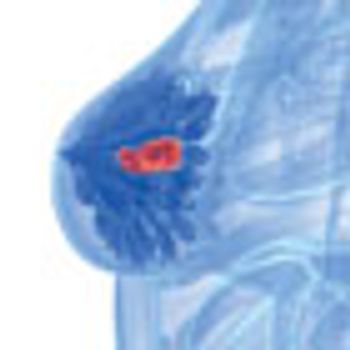
Thanks to The Cancer Genome Atlas (TCGA) Research Network, researchers now have a better understanding of genomic alternations in head and neck cancers.

Thanks to The Cancer Genome Atlas (TCGA) Research Network, researchers now have a better understanding of genomic alternations in head and neck cancers.

The recent extended approval of ibrutinib for the treatment of Waldenström's macroglobulinemia (WM), the disease's first FDA-approved therapy, has provided new hope for patients with the orphan disease.

During President Barack Obama's State of the Union Address last week, he announced a nationwide Precision Medicine Initiative that would help cure diseases such as cancer and diabetes. This morning he built on his announcement and outlined a $215 million plan to help develop precision medicine nationwide.

When motivating people to get screened for cancer, fear may not be the best way to do it.

A new study has found that while the breast cancer prevention drug tamoxifen's benefits outweigh its risks, the drug isn't right for all women.

Even though cancer technology and treatment have improved greatly over the years, patients are still wary of participating in first-in-human studies of potential new agents.

A new study has shown that postmenopausal women who had insulin abnormalities were at an increased risk for breast cancer regardless if they were overweight or normal-weight individuals.

Researchers from the Case Comprehensive Cancer Center have discovered new gene mutations that are unique to colon cancer in African American patients, who have the highest incidence and death rate from the disease.

Results of a phase II study showed that women with small, stage I HER2-positive tumors who received a combination of lower-intensity chemotherapy and the targeted drug trastuzumab following surgery were highly unlikely to have the cancer recur within 3 years

The American Association for Cancer Research (AACR) and the American Society of Clinical Oncology (ASCO) have collaborated on an outline that would help policymakers regulate electronic cigarettes and other electronic nicotine devices (ENDS) without undermining their potential as a smoking cessation tool, the two cancer organizations announced.

Two recent studies outline the importance of nutrition in preventing obesity-related cancers as well as the potential benefits of a nutrition education intervention in preventing breast cancer recurrence.

There's another type of toxicity that physicians and nurses should watch out for. But this one is harder to spot and can affect the patient even after treatment has stopped.

New research has found that the overall survival of male patients with breast cancer has improved over time, but the improvement is not as good as it has been for female patients with breast cancer

New research presented at the 2014 San Antonio Breast Cancer Symposium has shown that women with triple-negative breast cancer (TNBC) are more likely to seek out information about their specific subtype and experience more fear, anxiety, and worry than women with other subtypes of breast cancer,

New data has shown that states that have higher rates of cervical cancer incidence and mortality also have low HPV vaccination rates among young women.

The study, published in BJU International, has found that androgen deprivation therapy (ADT) was associated with a 3.3-times increased risk of heart-related deaths in men with congestive heart failure or prior heart attacks.

A consensus has emerged among oncology practitioners that palliative care should not be seen as end-of-life care but is best deployed early to help patients and their caregivers manage symptoms throughout the cancer treatment trajectory.

A telephone-based symptom monitoring and coaching system not only alleviated hospice patients' symptoms during their final weeks of life, it also improved the well-being of family caregivers, according to a new study.

New research has identified a genetic variant that helps reduce the risk of breast cancer in some Latina patients by 40% to 80%.

A new study has shown that although patients with ovarian cancer were more likely to enter hospice care, the cost of hospital-based services actually increased, dispelling the hope that the cost of hospital services would decline if more patients opted for hospice care.

The Colon Cancer Alliance will be awarding 20 individuals with $300 each to help offset the cost of receiving a colonoscopy.

A new study has found that parents with dependent children are more likely to pursue life-extending treatments in order to have more time with their children.

Katherine Morris, MD, had only been practicing for 3 years when Cody Curtis asked her to prescribe lethal medication so that she could die on her own terms.

The FDA has approved NEPA (Akynzeo) to treat nausea and vomiting in patients undergoing chemotherapy as part of their cancer treatment.

A new study has found that nearly one third of cancer patients suffer from anxiety or other mental health challenges, with breast cancer patients, head and neck cancer patients and melanoma patients suffering the most.

A new study has found that obesity and high inflammation during adolescence was associated with an increased risk of developing colorectal cancer later in life

New research suggests that exposure to dim light at night may cause breast cancer patients to become resistant to certain types of therapy.

New research on the risk-reducing benefits of aspirin shed more light on its mechanism of action as well as its potential benefit to reduce the risk of aggressive prostate cancer

Academic medical centers and commercial genetics laboratories across the country have joined forces to establish the Prospective Registry Of Multi-Plex Testing (PROMPT), an online registry for individuals and families who have undergone testing for inherited cancer-causing genetic mutations.

The flu might just be an unwelcome nuisance for the average individual, but it can cause serious complications for cancer patients receiving treatment.